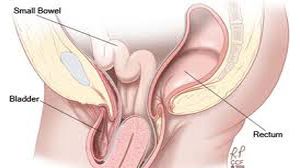Mastering the Technique: A Guide to Performing Diagnostic Cystoscopy
Add to
Share
1,997 views
Report
2 years ago
Description
Diagnostic cystoscopy is a minimally invasive medical procedure used to examine the inside of the bladder and urinary tract. It involves inserting a cystoscope, a thin tube with a camera and light attached to it, through the urethra and into the bladder. Diagnostic cystoscopy is a valuable tool for diagnosing and monitoring a variety of urinary tract conditions, including bladder tumors, infections, and incontinence. In this discussion, our panel of medical experts will provide a comprehensive guide to performing diagnostic cystoscopy. They will cover the preparation required for the procedure, including patient education and informed consent, as well as the necessary equipment and techniques used during the procedure. Participants will also gain insight into the potential complications and risks associated with diagnostic cystoscopy, and learn how to minimize these risks through proper patient selection and technique. The panel will also provide tips and tricks for maximizing the diagnostic accuracy of the procedure, including proper positioning and manipulation of the cystoscope. Additionally, the discussion will cover the role of diagnostic cystoscopy in the broader context of urological care, including its use in conjunction with other diagnostic and therapeutic modalities. Participants will come away with a comprehensive understanding of the diagnostic cystoscopy procedure and its role in the diagnosis and management of urinary tract conditions. Join us for this informative discussion on mastering the technique of diagnostic cystoscopy, led by a panel of experienced medical experts. Diagnostic cystoscopy is a common procedure used by urologists to visualize the bladder and urinary tract for diagnosis and treatment of various conditions. In this discussion, our panel of experts will provide a comprehensive guide to performing diagnostic cystoscopy with precision and minimal patient discomfort. The panel will first cover the patient selection and preparation required for diagnostic cystoscopy, including proper patient education and informed consent. They will also discuss the necessary equipment and techniques required to perform the procedure safely and effectively. Participants will also gain a thorough understanding of the diagnostic accuracy of cystoscopy, including its use in diagnosing conditions such as bladder tumors, bladder stones, and infections. They will learn about the importance of proper positioning and manipulation of the cystoscope to ensure accurate visualization of the bladder and urinary tract. In addition to discussing the technique of diagnostic cystoscopy, the panel will also address potential complications and risks associated with the procedure, as well as ways to minimize these risks. They will also discuss the role of diagnostic cystoscopy in the broader context of urological care, including its use in conjunction with other diagnostic and therapeutic modalities. Overall, this discussion will provide a comprehensive guide to mastering the technique of diagnostic cystoscopy, an essential tool in the diagnosis and management of various urinary tract conditions. With the help of our expert panel, participants will gain a deeper understanding of the procedure and its benefits, as well as best practices for maximizing patient outcomes and minimizing risk. The discussion will also explore the different types of cystoscopes and their respective advantages and disadvantages. Participants will learn about the various sizes, shapes, and materials used in cystoscopes, as well as the different visualization technologies, such as video and fiber-optic systems. The panel of experts will also discuss the use of sedation and anesthesia during diagnostic cystoscopy, including the different types of anesthesia available and their respective risks and benefits. They will provide tips and recommendations for managing patient discomfort and minimizing the risk of complications during the procedure. In addition, the discussion will address the role of diagnostic cystoscopy in the ongoing management and treatment of various urinary tract conditions, such as the monitoring of bladder tumors and the follow-up evaluation of bladder stones or infections. The panel will also provide insights into the potential future developments in cystoscopy technology and techniques, as well as their impact on the diagnosis and management of urinary tract conditions. Overall, this comprehensive discussion on mastering the technique of diagnostic cystoscopy will provide participants with an in-depth understanding of the procedure, its benefits, and its risks. With the guidance of our expert panel, participants will gain valuable insights into the proper technique and best practices for maximizing patient outcomes and minimizing complications.
Similar Videos






